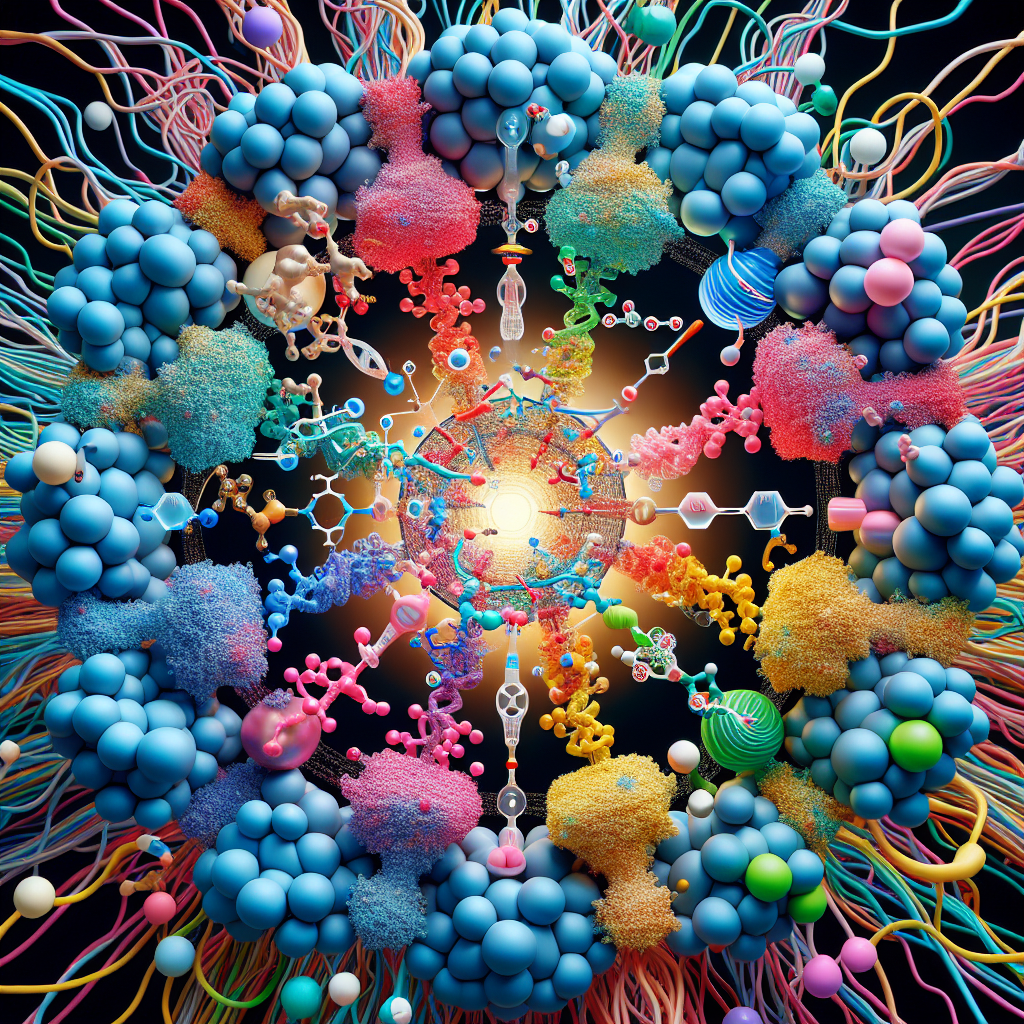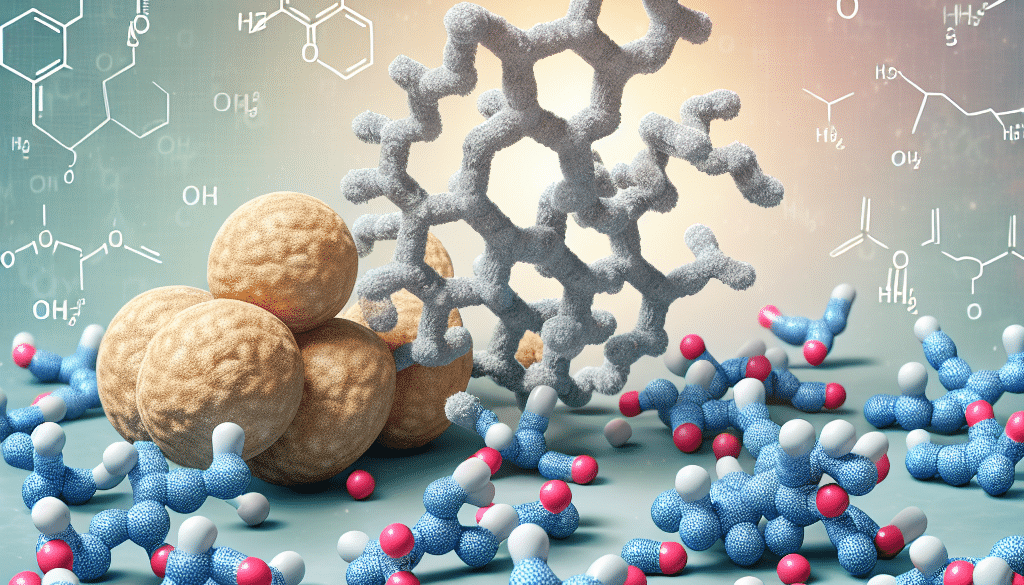Does Isolated Soy Protein Affect Hormones?
-
Table of Contents
- Isolated Soy Protein and Hormonal Effects: Understanding the Connection
- What is Isolated Soy Protein?
- The Hormonal Concern: Phytoestrogens in Soy
- Research on Soy Protein and Hormone Levels
- Case Studies and Anecdotal Evidence
- Considerations for Different Populations
- Recommended Intake and Safety
- Conclusion: Balancing the Evidence
- Discover ETprotein’s High-Quality Protein Products
Isolated Soy Protein and Hormonal Effects: Understanding the Connection

Isolated soy protein is a common ingredient in various food products, from protein bars to meat substitutes. Its popularity stems from its high protein content and potential health benefits. However, there has been ongoing debate and research into whether isolated soy protein can affect hormones in the human body. This article delves into the scientific evidence to explore the relationship between isolated soy protein and hormonal balance.
What is Isolated Soy Protein?
Isolated soy protein is a protein that is extracted from soybeans. It is made by removing most of the fats and carbohydrates, resulting in a product that is up to 90% protein. This makes it a popular choice for those looking to increase their protein intake without adding extra calories from fats and carbs.
The Hormonal Concern: Phytoestrogens in Soy
The primary concern regarding soy protein and hormones is its content of phytoestrogens, particularly isoflavones. Phytoestrogens are plant-derived compounds that can mimic the effects of estrogen in the body. The three main isoflavones in soy are genistein, daidzein, and glycitein.
- Genistein: Known for its antioxidant properties, genistein is the most studied isoflavone.
- Daidzein: This compound can be metabolized into equol, a substance with potent estrogenic activity, in some individuals.
- Glycitein: The least abundant isoflavone in soy, glycitein also exhibits estrogenic activity.
Research on Soy Protein and Hormone Levels
Several studies have investigated the effects of soy protein on hormone levels, with varying results. Here’s a look at some of the findings:
- A meta-analysis of 47 studies found that soy protein supplementation had no significant effect on the testosterone levels of men.
- Research on postmenopausal women has shown that soy isoflavones may help alleviate menopausal symptoms by mimicking estrogen’s effects, though results are mixed.
- Some studies suggest that high consumption of soy protein may influence menstrual cycles and fertility in women, but the evidence is not conclusive.
It’s important to note that individual responses to soy protein can vary based on factors such as gut microbiota composition, which influences isoflavone metabolism.
Case Studies and Anecdotal Evidence
While scientific studies provide a broad understanding, individual case studies and anecdotal reports offer insights into personal experiences with soy protein. Some individuals report changes in menstrual cycle regularity or symptoms of hormonal imbalance after consuming soy products, while others notice no effects.
Considerations for Different Populations
The impact of isolated soy protein on hormones may differ among various populations:
- Men: Concerns about soy protein reducing testosterone levels are largely unfounded based on current research.
- Women: Soy may offer benefits for menopausal symptoms, but its effects on fertility and menstrual cycles require further study.
- Children: Limited research suggests that soy intake in childhood does not adversely affect pubertal development or hormone levels.
Recommended Intake and Safety
The general consensus among health organizations is that moderate consumption of soy protein is safe for most people. The Food and Drug Administration (FDA) suggests that 25 grams of soy protein per day, as part of a diet low in saturated fat and cholesterol, may reduce the risk of heart disease.
Conclusion: Balancing the Evidence
In conclusion, the current body of research indicates that isolated soy protein does not have a significant impact on hormone levels for most people. While phytoestrogens in soy can interact with estrogen receptors, moderate consumption is generally considered safe and may even offer health benefits. However, individual responses can vary, and more research is needed to fully understand the long-term effects of high soy protein intake.
Discover ETprotein’s High-Quality Protein Products
If you’re looking to incorporate high-quality protein into your diet, ETprotein offers a range of organic, non-GMO, allergen-free vegan proteins. Their products, including organic rice protein, pea protein, and various seed proteins, are characterized by a neutral taste and high purity levels. Catering to industries such as nutraceuticals, pharmaceuticals, and food and beverage, ETprotein is a trusted supplier for your protein needs.
About ETprotein:
ETprotein, a reputable protein and L-(+)-Ergothioneine (EGT) Chinese factory manufacturer and supplier, is renowned for producing, stocking, exporting, and delivering the highest quality organic bulk vegan proteins and L-(+)-Ergothioneine. They include Organic rice protein, clear rice protein, pea protein, clear pea protein, watermelon seed protein, pumpkin seed protein, sunflower seed protein, mung bean protein, peanut protein, and L-(+)-Ergothioneine EGT Pharmaceutical grade, L-(+)-Ergothioneine EGT food grade, L-(+)-Ergothioneine EGT cosmetic grade, L-(+)-Ergothioneine EGT reference grade and L-(+)-Ergothioneine EGT standard. Their offerings, characterized by a neutral taste, non-GMO, allergen-free attributes, with L-(+)-Ergothioneine purity over 98%, 99%, cater to a diverse range of industries. They serve nutraceutical, pharmaceutical, cosmeceutical, veterinary, as well as food and beverage finished product distributors, traders, and manufacturers across Europe, USA, Canada, Australia, Thailand, Japan, Korea, Brazil, and Chile, among others.
ETprotein specialization includes exporting and delivering tailor-made protein powder and finished nutritional supplements. Their extensive product range covers sectors like Food and Beverage, Sports Nutrition, Weight Management, Dietary Supplements, Health and Wellness Products, and Infant Formula, ensuring comprehensive solutions to meet all your protein needs.
As a trusted company by leading global food and beverage brands and Fortune 500 companies, ETprotein reinforces China’s reputation in the global arena. For more information or to sample their products, please contact them and email sales(at)ETprotein.com today.












